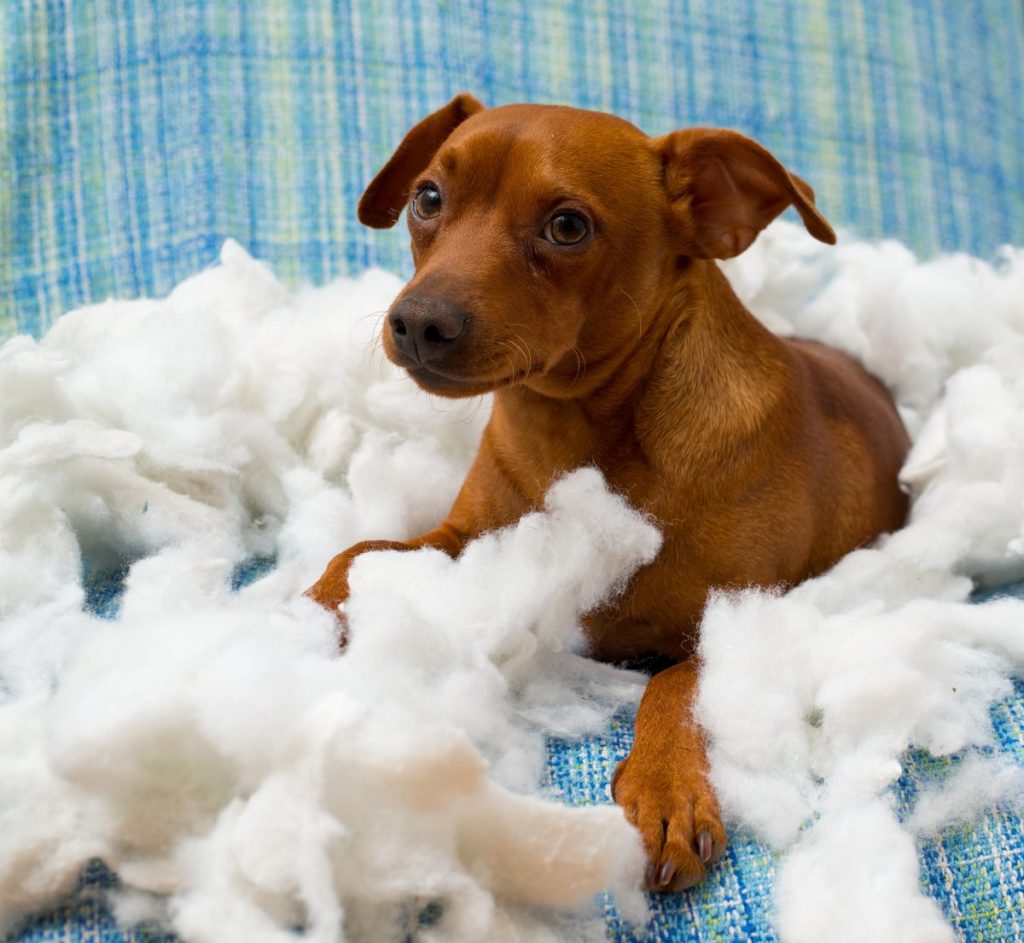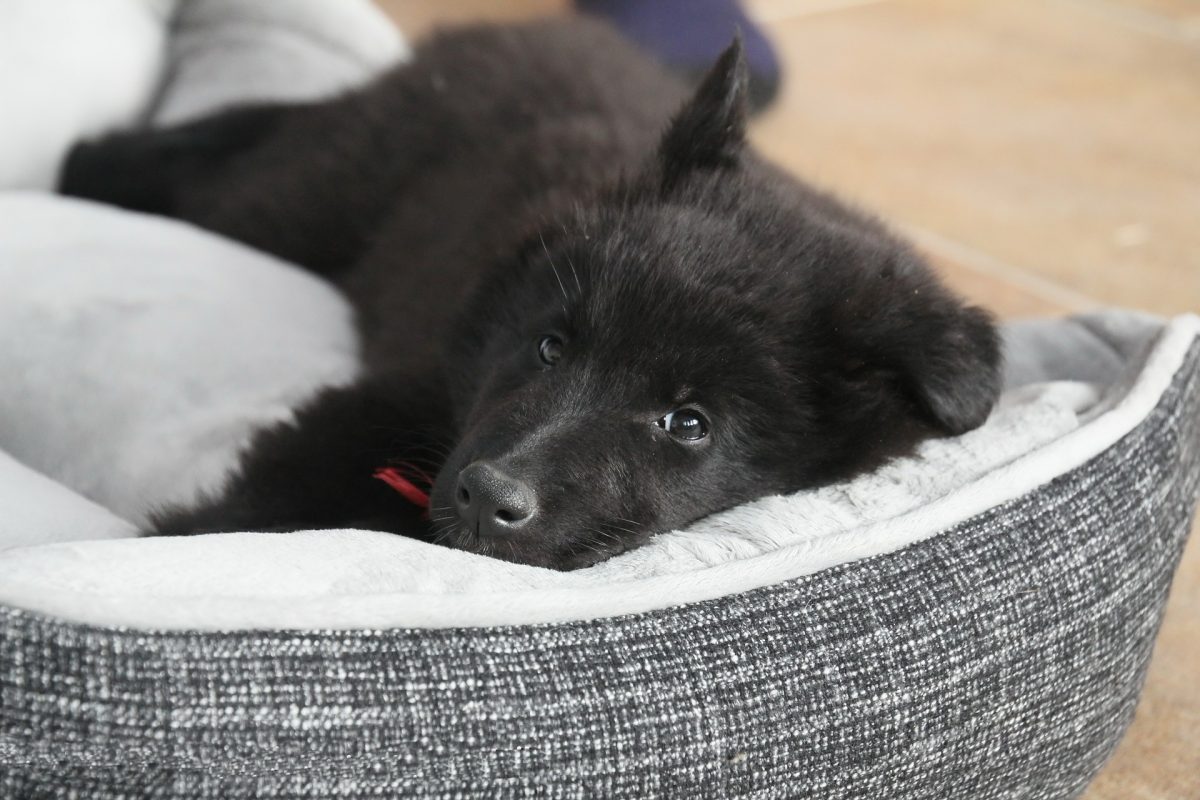Chewing is a natural behavior for dogs. They put items in their mouths as a means of exploring. It can become an issue, however, if your dog is chewing on inappropriate things, such as your shoes, carpeting, or his bed.
There are many reasons for this type of behavior and understanding why your dog may be chewing in the first place is the first step in dealing with the problem.
Why Dogs Chew
There are a number of reasons why a dog might chew his bedding. Here are just a few:
- Testing – Throughout a dog’s life, he will chew items as a way of testing them to see if anything good comes out of it.
- Teething – When your puppy is between four and six months old, he will instinctively chew to help his teeth through the growing process. This can also happen if he is trying to relieve tenderness in his gums and teeth.
- To keep gums healthy and strong – You brush, your dog chews.
- Exercise jaw muscles – Around seven to eight months old, your pup will reach the height of his destructive stage of chewing.
- Boredom – A bored or lonely dog will become destructive and chew for longer periods of time.
- Responsibility – As your puppy evolves into a teenager, about six months to a year in age, his instinct will tell him to chew to hunt or protect his pack and himself.
- Anxiety – Chewing is a way for pooches to comfort themselves if they are dealing with anxiety or tension.
- Obsession – Your dog can develop an obsessive chewing disorder.
- Practice – Instinct instructs them to practice.
- Enjoyment – If it smells, looks, or tastes good they may chew on it for enjoyment.
How to Stop Your Dog From Chewing His Bed
If you have determined that the cause of your dog’s destructive chewing is not caused by an underlying medical condition, there are plenty of ways you can deter him from chewing his bed. This works both in puppies and older dogs.
Chew Toys
If your dog is determined to chew, introduce him to some appropriate new chew toys. Encourage him to chew on these items rather than his bed. Along with the chew toys, give him some dental chew sticks. Bones can also be beneficial.
Just remember to remove any piece that could be small enough to swallow, and stay shy of bones that easily splinter, such as chicken bones.
Attention Diversion
Some dogs will take up chewing if they are bored, and this is one of the most common reasons behind destructive chewing behavior. Try to divert your dog’s attention by buying him some new toys, or taking him outside to play or for a walk. The trick is to not allow your dog to become too bored, or else he’ll start chewing simply as a way of passing the time.
Anti-Chew Sprays
The concept of an anti-chew spray is that they taste bad and repel dogs away, eventually keeping your dog from chewing on his bed because he fears the taste. If you plan on using an anti-chew spray, always be careful to check the ingredients.
Those with bittering agents are typically safe for dogs, but watch out for ones that contain aluminum sulfate. While small quantities are believed to be harmless, too much has been proven to affect brain functioning.
Teach Him Not to Chew
If you catch your dog chewing on his bedding, make a loud noise, such as clapping, to get his attention and give him a chew toy in place of his bed/
Avoid Putting Your Dog in Stressful Situations
Your dog’s chewing could be a reaction to stress. Moving to a new location or losing a fellow pet may cause this behavior. Try to comfort your dog as much as possible if this happens and show him tons of love and affection.
Training your dog to not chew on his toy requires patience and effort. Keep him out of stressful situations, don’t let him get bored, and provide him with the proper toys to play with.





